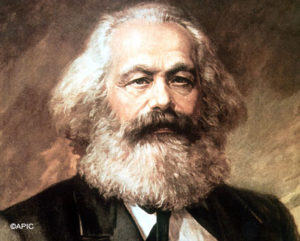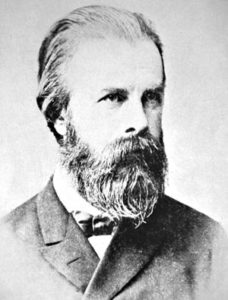Several years ago, I recommended that C. D. Broad be considered the default philosopher of the twentieth century. By “default” I meant what in computer word processing programs is meant by factory settings. These are considered the most useful or the most widely used settings. I had in mind for Broad what, for the medieval world, was the role of Aristotle. Well, the only discernible effect of my proposal was to resurrect Broad from oblivion.
My recommendation of Broad was restricted to logic, epistemology, metaphysics, and ethics. It did not include “political economy” — a somewhat neglected phrase. Why is it neglected? Because the economic system of capitalism is presumed by those in power and by those who are influenced by those in power to be the desired system; consequently, courses in colleges which are offered for the study of how this economic system works are simply called “Economics.” If they were to be called “political economy,” that would suggest a reflective criticism — which is not wanted.
That brings me to the question of who is or was the default philosopher of “political economy?” Here I have no elbow room for recommendations, because history has made Karl Marx the default philosopher of political economy. As Eric Wolf remarked in Europe and the People Without History (1982), “. . . the social sciences constitute one long dialogue with the ghost of Marx.” (p. 20)

And this is recognized by the prominent Internet site: “Marxists Internet Archive.” Although the site rightly makes Marx the pivotal — or, using my term “default” — thinker, the archive really covers what is better called “Socialism.” Let me explain. If Capitalism is the economic system which favors the employer, then socialism is the economic system which favors the employee. Viewed this way, the State (which means a centralized government) can then be used by socialists either for reform or for revolution. The other alternative for socialists is to get rid of the centralize State altogether, and replace it with small, grassroots communal democratic governments. This is the goal of anarchists. (Incidentally, the idea that government can be abolished entirely is a myth because government is simply the customary rules, or rules which people have adopted freely, or rules which have been imposed on them.)
As to the Marxist Internet Archive, though it includes some of the major anarchists, it neglects many. Other than using Wikipedia to get oriented in anarchism, I recommend using “Anarchy Archives” . I have also tried to compile an alphabetical bibliography at “Anarchism: the Unfinished Revolution.”
Since these socialist archives are in English, they do not cover some key writers in foreign languages. My personal interest, in part, is in the anarchist developments in Ukraine and during the Russian Revolution. In this regard, I note the absence of Mikhailo Drahomanov in socialist archives, and the absence of Nestor Makhno in the Marxists Internet Archive. Anarchists have almost universally recognized the achievements of Nestor Makhno, and there is a site devoted to him “The Nestor Makhno Archive” . My own mini Nestor Makhno archive is here.
As to Mikhailo Drahomanov, he has, as it were, passed under the radar. Although there is in Kyiv, Ukraine, the National Pedagogical Drahomanov University, it has not given him the attention he deserves. In 1991, Myroslav Alexander Moroz published a full-scale bibliography of works by and on Drahomanov. It is available in Ukrainian, with expansions, here. As to English sources, Ivan Rudnytsky wrote several articles in English on the political views of Drahomanov, and he tried to make him available to the English public in 1952, with translations and commentaries:
Rudnytsky Ivan L. Mykhailo Drahomanov: A symposium and Selected Writings. New York: Ukrainian Academy of Arts and Sciences in the U.S., 1952.
I wrote a piece on these two anarchists: “Two Ukrainian Anarchists:
Mykhailo Drahomanov and Nestor Makhno” (2011)


Mykhailo Drahomanov Nestor Makhno
